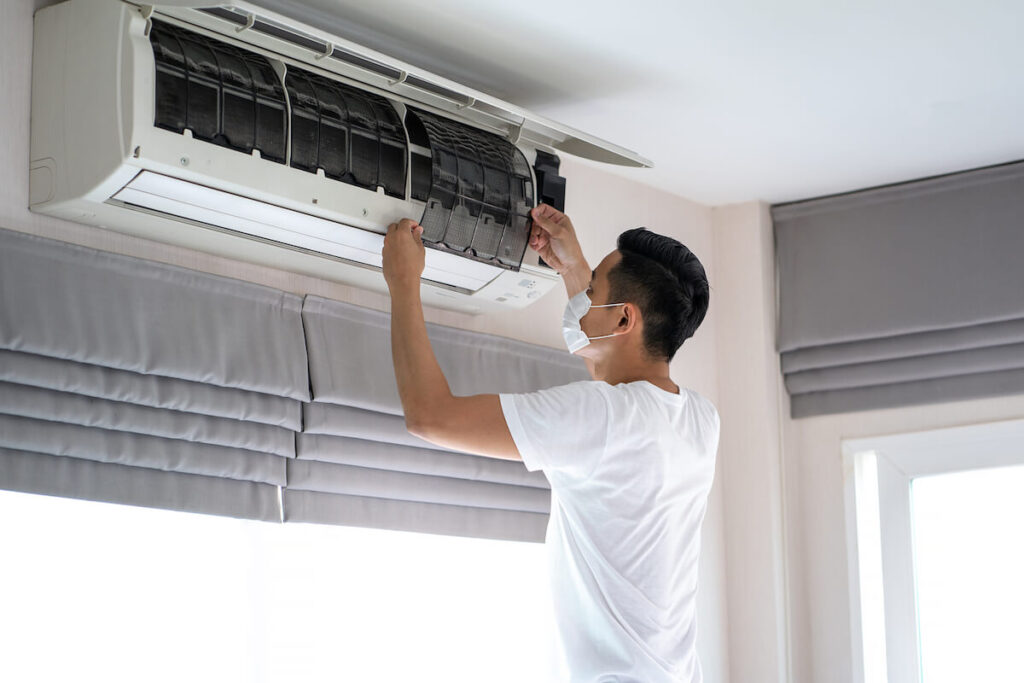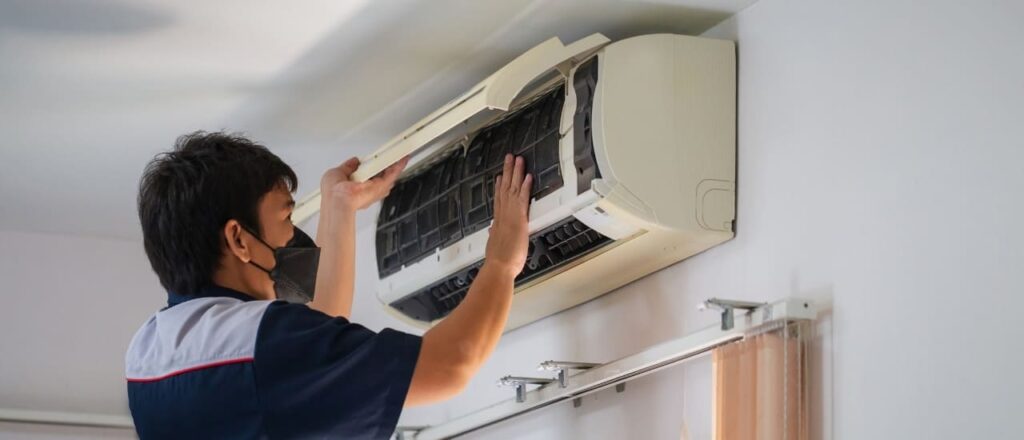AC Repair and Quick Fixing
When your air conditioning unit breaks down on a hot summer day, it can feel like the end of the world. But don’t sweat it! This guide will help you navigate the ins and outs of AC repair and quick fixes, ensuring you’re back to cool comfort in no time.
Understanding Your AC System
Before diving into repairs, it’s crucial to understand how your AC system works. Your air conditioner isn’t just one unit but a system comprising several components working together to cool your home. The main parts include the compressor, condenser, evaporator coil, and refrigerant. Think of it like a relay race, AC Repair and Quick Fixing, where each part hands off the baton to the next to keep the cool air flowing.
Common AC Problems

1. AC Not Turning On
Isn’t it frustrating when you flip the switch, and nothing happens? This issue could be due to a tripped breaker, AC Repair and Quick Fixing, faulty thermostat, or an internal switch being off.
2. Insufficient Cooling
Your AC is running, but your house feels like an oven. This could result from a dirty filter, low refrigerant, or a blocked condenser unit.
3. Strange Noises
A noisy AC can be unnerving. Common noises include rattling (loose parts), hissing (refrigerant leaks), and grinding (motor issues).
4. Leaking Water
Water pooling around your AC unit can indicate a clogged drain line, a broken condensate pump, or improper installation.
5. Foul Smells
If your AC emits a foul odor, it could be due to mold in the ductwork or a burned-out wire.
DIY Quick Fixes
1. Resetting the System
Sometimes, turning your AC off and on again can solve the problem. It’s like giving your AC a mini vacation to reset.
2. Cleaning or Replacing Filters
Dirty filters can restrict airflow, reducing efficiency. Regularly clean or replace your filters to keep your system running smoothly.
3. Checking the Thermostat
Ensure your thermostat is set to the correct temperature. Replace batteries if necessary.
4. Clearing Debris
Make sure the area around your outdoor unit is free of debris like leaves and branches.
5. Inspecting Ductwork
Look for any visible leaks or blockages in your ductwork that could be hindering airflow.
When to Call a Professional
If your DIY fixes don’t solve the problem, AC Repair and Quick Fixing, it may be time to call in a professional. Here are some scenarios where professional help is crucial:
- Persistent Issues: If your AC problems persist despite your efforts.
- Complex Repairs: Issues with refrigerant levels, electrical components, or the compressor.
- Regular Maintenance: Annual check-ups by a professional can prevent major problems down the line.
Preventative Maintenance Tips
1. Schedule Regular Inspections
Have a professional inspect your AC system at least once a year.
2. Clean Coils and Fins
Keep the coils and fins of your AC unit clean to maintain efficiency.
3. Maintain the Surrounding Area
Ensure the area around your outdoor unit is clear of debris to allow proper airflow.
4. Replace Filters Regularly
Change your AC filters every 1-3 months, depending on usage and air quality.
5. Check Refrigerant Levels
Ensure refrigerant levels are adequate and there are no leaks.
The Cost of AC Repair
AC repair costs can vary widely depending on the issue. Simple fixes like replacing a filter or cleaning the coils are relatively inexpensive, AC Repair and Quick Fixing, while more complex problems like refrigerant leaks or compressor failures can be costly. It’s important to get an estimate before proceeding with repairs.
Energy Efficiency and Your AC
An energy-efficient AC can save you money on utility bills and reduce your carbon footprint. Look for units with a high SEER (Seasonal Energy Efficiency Ratio) rating and consider smart thermostats that optimize usage.
Choosing the Right AC Unit
When selecting a new AC unit, consider factors like the size of your home, your budget, and the unit’s energy efficiency. Consulting with a professional can help you make the best choice for your needs.
Signs You Need a New AC
Sometimes, it’s more cost-effective to replace an old AC unit than to keep repairing it. Here are some signs it might be time for a new unit:
- Frequent Breakdowns: If your AC is constantly needing repairs.
- High Energy Bills: An old, inefficient unit can drive up energy costs.
- Inconsistent Temperatures: If your home never seems to get cool enough.
AC Repair Myths Busted
1. Bigger is Better
A larger AC unit isn’t always better. It can lead to inefficiency and higher costs.
2. Only Change Filters Annually
Filters should be checked monthly and changed as needed, typically every 1-3 months.
3. Maintenance Isn’t Necessary
Regular maintenance is crucial to keep your AC running efficiently and prolong its lifespan.
Benefits of Regular AC Maintenance

Regular maintenance can prevent major breakdowns, improve efficiency, and extend the life of your AC unit. Think of it like regular oil changes for your car—simple upkeep that saves you money in the long run.
The Importance of a Good Thermostat
A reliable thermostat is essential for maintaining your home’s temperature. Consider upgrading to a programmable or smart thermostat for better control and efficiency.
Seasonal AC Tips
1. Summer Preparation
Before the heat hits, make sure your AC is in top shape. Check the filters, clean the unit, and schedule a professional inspection.
2. Winter Shut Down
In colder climates, winterize your AC by covering the outdoor unit and turning off the power.
3. Spring Cleaning
Spring is an ideal time to clean your AC unit and ensure it’s ready for the summer workload.
Conclusion
A well-maintained AC unit not only keeps your home comfortable but also saves you money and extends the life of your system. By understanding your AC, tackling common problems, and knowing when to call in a professional, AC Repair and Quick Fixing, you can ensure your AC runs smoothly all year round.
FAQs
1. How often should I replace my AC filter?
Replace your AC filter every 1-3 months, depending on usage and air quality.
2. Why is my AC making a hissing noise?
A hissing noise could indicate a refrigerant leak, which requires professional attention.
3. Can I repair my AC unit myself?
Some minor issues can be fixed DIY, but complex problems should be handled by professionals.
4. How can I improve my AC’s efficiency?
Regular maintenance, cleaning or replacing filters, and using a programmable thermostat can improve efficiency.
5. When should I consider replacing my AC unit?
Consider replacing your AC unit if it frequently breaks down, has high energy costs, or is over 10-15 years old.
